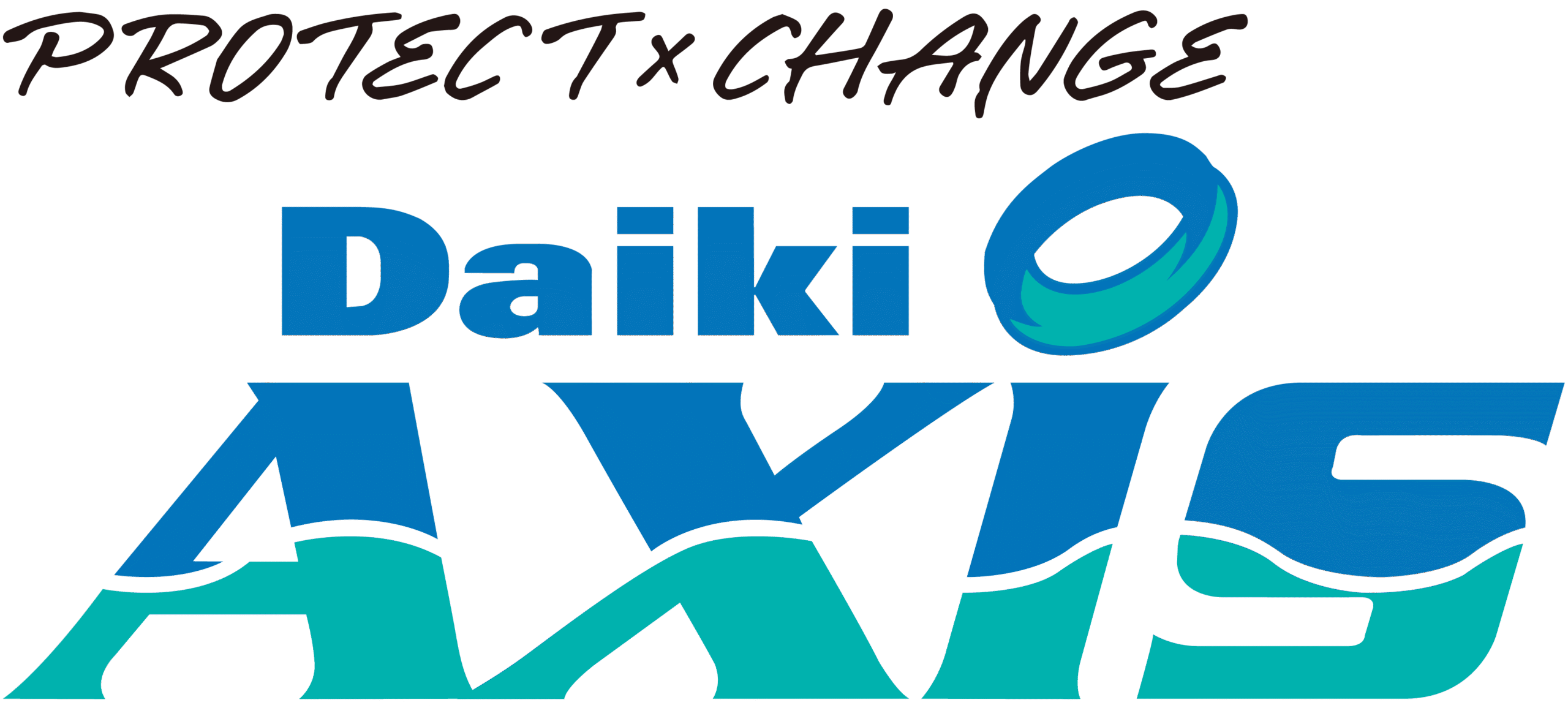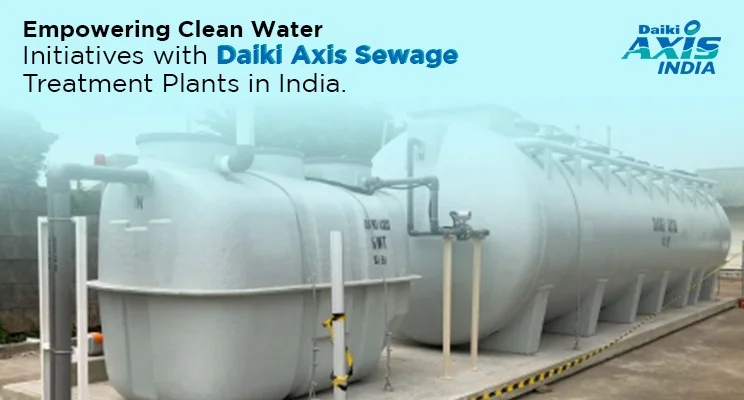India, a nation with over 1.3 billion people, faces a critical challenge in managing its sewage. The rapid urbanization and growing population have put immense pressure on existing sewage infrastructure. According to the Central Pollution Control Board (CPCB), only 37% of the sewage generated in urban areas is treated, with the remaining 63% being discharged untreated into water bodies. This leads to severe water pollution, posing health risks and environmental degradation.
Recognizing this pressing issue, the Government of India launched the Namami Gange project, a flagship initiative aimed at rejuvenating the River Ganga, which is central to Indian culture and spirituality. This project is not only about cleaning the river but also about addressing the larger problem of wastewater management in the country. Here, Daiki Axis India emerges as a crucial player, bringing in its advanced Johkasou technology to transform sewage treatment practices.
The Daiki Axis India Advantage
Daiki Axis, a renowned provider of decentralized wastewater treatment solutions, has been at the forefront of implementing innovative sewage treatment systems globally. Daiki Axis India, the local subsidiary, is poised to revolutionize wastewater management in India by leveraging its parent company’s state-of-the-art Johkasou technology.
Johkasou is a compact, efficient wastewater treatment system that meets high standards of water quality while minimizing environmental impact. Unlike traditional centralized sewage treatment plant (STPs), Johkasou systems are designed for decentralized applications, making them ideal for smaller cities, towns, and rural areas. This decentralized approach is essential for a country like India, where the infrastructure in many regions is not equipped to handle large-scale centralized sewage treatment.
Johkasou Technology
Johkasou technology offers numerous advantages over conventional sewage treatment systems. It provides a high level of treatment efficiency, producing water that meets stringent CPCB standards and the latest guidelines from the National Green Tribunal (NGT) for discharge into rivers. This technology is particularly suited for areas with challenging topographies, such as the hilly regions of Uttarakhand, where constructing extensive sewer networks is impractical.
One of the standout features of Johkasou systems is their modular design, which allows for easy installation and scalability. This makes it possible to implement these systems in various settings, from individual homes to large communities. Moreover, Johkasou systems require less land and are less costly to install and maintain compared to traditional STPs, making them a financially viable solution for many municipalities and private developers.
Daiki Axis India and the Namami Gange Project
The Namami Gange project has gained international acclaim for its comprehensive approach to river rejuvenation. As part of this initiative, Daiki Axis India is implementing nine projects across the Kumaon and Garhwal regions of Uttarakhand. These projects aim to treat domestic wastewater that currently flows untreated into rivers, thereby improving water quality and public health.
Daiki Axis India’s role involves not just supplying the Johkasou technology but also overseeing its implementation. This includes working closely with local government bodies, such as the Uttarakhand Peyjal Nigam, and academic institutions like IIT Roorkee, which ensure that the design and execution adhere to Indian standards and best engineering practices.
Collaborative Efforts for Sustainable Development
The success of these projects is a testament to the collaborative efforts between Daiki Axis India and various stakeholders. The Ministry of the Environment, Japan, has also signed a Memorandum of Cooperation with the National Mission for Clean Ganga (NMCG), underscoring the international collaboration involved in this endeavour.
Shri G Asok Kumar, Director General of NMCG, emphasized the importance of restoring the Ganga not only to its pristine state but also as a means to connect the local population with their traditional wisdom. By harnessing cutting-edge technologies like Johkasou, the Namami Gange project is forging a path towards sustainable development, aligning with a vision of a cleaner and greener future.
Addressing the Broader Issue of Sewage Management in India
The challenges of sewage management in India extend beyond the Ganga basin. Many smaller cities and towns face similar issues with untreated sewage contaminating local water bodies. The decentralized approach championed by Daiki Axis India offers a scalable and sustainable solution to this problem.
Mr Kamal Tiwari, CEO of Daiki Axis India, highlighted the paradigm shift from traditional centralized STPs to decentralized systems. This shift not only reduces costs and land requirements but also simplifies implementation, particularly in areas where infrastructure development is challenging. Decentralized systems treat wastewater at its source, reducing the risk of contamination and making efficient use of local resources.
The Future of Wastewater Treatment in India
As India continues to urbanize, the demand for effective and sustainable sewage treatment solutions will only grow. Daiki Axis India’s Johkasou technology is well-positioned to meet this demand, offering a viable alternative to outdated and inefficient systems. By promoting decentralized wastewater management, Daiki Axis India is contributing to a brighter, more resilient future for the country.
The company’s commitment to the “Make in India” initiative ensures that all products are manufactured locally, supporting economic growth and job creation. This local manufacturing capability also allows for greater customization and responsiveness to the specific needs of Indian communities.
Conclusion
Daiki Axis India, with its advanced Johkasou technology, is set to play a pivotal role in transforming sewage treatment plant in India. Through its involvement in the Namami Gange project and other initiatives, the company is demonstrating the effectiveness and versatility of decentralized wastewater management systems. As India continues its journey towards sustainable development, the innovative solutions provided by Daiki Axis India will be crucial in ensuring clean and healthy water resources for all.
By focusing on decentralized systems, efficient treatment technologies, and collaborative efforts, Daiki Axis India is paving the way for a cleaner and greener future, not just for the Ganga but for water bodies across the nation.
Contact us at https://daikiaxis.in/contact-us/
Read more relevant blogs here: https://daikiaxis.in/blog/
#DaikiAxis #Johkasou #sewage #water #STP #DaikiSTP #SewageTreatmentPlantinIndia
#PackagedSTP #JohkasouPrice #PackagedSewageTreatmentPlant #STPCompanies #STPPlant #SewageTreatmentPlantinDelhi #STPPlantManufactures #SewageTreatmentPlantManufacturesinIndia #johkasouSTP

